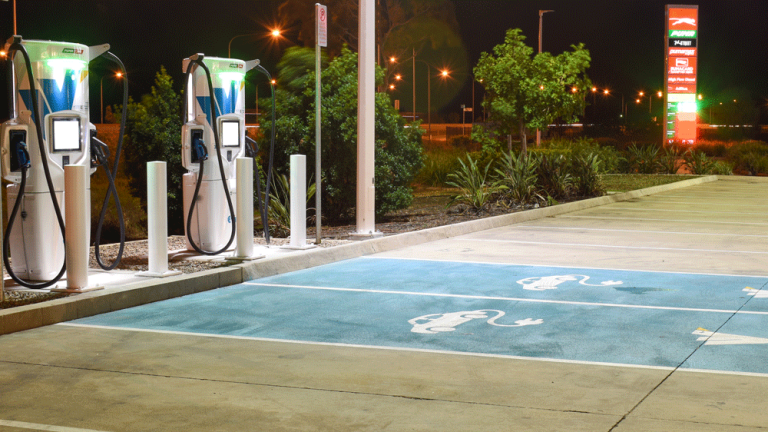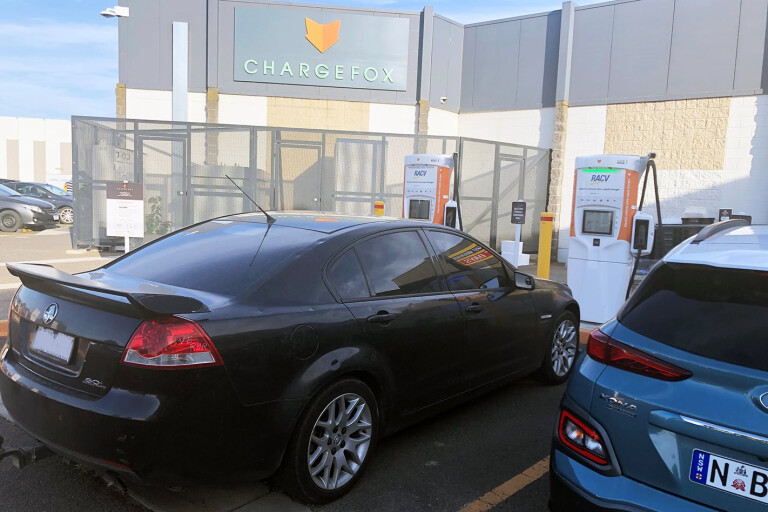
UPDATE: The ACT becomes fourth state to legislate against the act of "ICEing".
Motorists within Australia's capital can face fines of as much as $3200 for blocking an electric vehicle charging space with a combustion vehicle – the harshest penalty in the nation.
Queensland and NSW also have introduced four-figure penalties for blocking access to EV chargers with a petrol or diesel vehicle. In NSW, the fine could cost up to $2200, while in Queensland it could sting drivers up to $2875.
.jpg)
The ACT's legislature also applies to electric vehicle owners who occupy charging spaces but are not recharging their vehicle. The intention is to encourage EV adoption while preventing the electric equivalent of someone 'parking in front of a fuel bowser'.
NSW's law, passed in November but announced earlier in March, does not specify that an EV must also not block a charger if not actually using it.
Victoria's penalty for misusing an electric vehicle charging space is $369.

Chris Jones, national president of the Australian Electric Vehicle Association, said that, while penalties for blocking EV infrastructure are high, they were necessary to educate the public who may have not considered the repercussions.
"No one would like it if I parked my vehicle in front of a fuel bowser and walked inside and ordered lunch", said Jones.
"There needs to be an acknowledgement that there are places you can park and places you can't – and right in front of an EV charger is one where you can't."

Electric Vehicle Council policy head, Jake Whitehead, said fines deliver "a very clear and strong signal", but further explained that greater education may also be needed for combustion vehicle drivers who are increasingly encountering EV chargers being added to existing car parks and public spaces as infrastructure slowly improves.
Whitehead also touched on the need to educate new EV drivers who don't recognise the need to vacate charging locations as soon as practical.
"Every charger available is critical and valuable to the fleet of 80,000-odd EVs in the country and we need to make sure they're not blocked, either intentionally or accidentally," he said.

"There are genuine mistakes made by some people, but we need to have a broad recognition across society that these chargers need to be available to EVs so we can have more on our roads."
According to the EV Council, there are more than 83,000 electric vehicles in Australia. Recent monthly sales data from February indicates that EVs represent 6.8 per cent of all new car registrations nationally.
The story to here
March 6: New South Wales has brought in legislation to stop petrol- and diesel-powered (ICE) vehicles from taking up parking spots reserved for electric cars.
The law change, which was quietly implemented in November but publicly published in March, is aimed particularly at stopping ICE vehicles from blocking EV chargers in the state.
ICE vehicle owners caught doing so could be fined up to $2200, the equivalent of 20 penalty points.

The addition to the NSW Road Rules, first reported by The Driven, states: 'A driver of a vehicle that is not an electric-powered vehicle must not stop in a parking area for electric-powered vehicles.
'A driver must not stop in a parking area for the charging of electric-powered vehicles unless—
(a) the driver’s vehicle is an electric-powered vehicle, and
(b) the electric-powered vehicle is plugged in to an external source of electricity.'


While the updated legislation doesn't specify that an EV must also not block a charger if it's not actually using it, it does refer to a parking area being somewhere indicated by a permissive parking sign or road marking with the words 'while charging' on it.
Back in December 2020, Victoria became the first state to introduce penalties for blocking EV parking spaces and chargers, with fines starting from $99.
Queensland also followed suit in early 2022.
COMMENTS